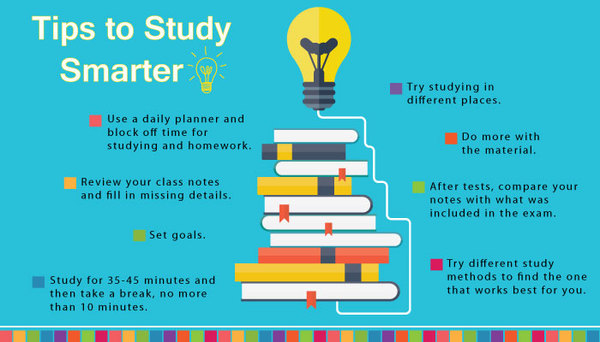Effective Study Techniques: Tips for Students
admin
October 14, 2023

Effective Study Techniques: Tips for Students
Title: Effective Study Techniques: Tips for Students
Studying is a fundamental aspect of academic success, but not all study techniques are equally effective. In this blog post, we will explore key strategies to help students maximize their learning and retention.
1. **Active Learning:** Active learning involves engaging with the material rather than passively reading or listening. This can be achieved through techniques such as summarizing information in your own words, asking questions, and discussing the material with peers. Active learning promotes better understanding and retention of the content.
2. **Effective Time Management:** Managing your time efficiently is crucial for effective studying. Create a study schedule that includes regular breaks to avoid burnout. Prioritize difficult subjects and allocate more time to them. Tools like the Pomodoro Technique, where you work for 25 minutes and then take a 5-minute break, can be particularly useful.
3. **Organized Note-Taking:** Good note-taking is essential. Use a note-taking method that works for you, whether it’s traditional handwritten notes, digital notes, or mind maps. Structured notes help you condense information and make it easier to review.
4. **Active Recall:** Instead of simply re-reading your notes or textbooks, test your knowledge through active recall. Try to remember key concepts, facts, or formulas from memory. This strengthens your memory and helps you identify areas that need more attention.
5. **Flashcards:** Flashcards are an excellent tool for memorization. Create flashcards with questions or keywords on one side and answers on the other. Quiz yourself regularly to reinforce your knowledge.
6. **Variety of Resources:** Don’t rely on a single resource. Utilize textbooks, online resources, videos, and other materials to gain a comprehensive understanding of the subject matter.
7. **Break Down Complex Concepts:** If you encounter complex or challenging topics, break them down into smaller, more manageable pieces. This makes it easier to understand and master the material.
8. **Teaching Others:** Explaining a concept to someone else is a powerful way to reinforce your own understanding. If possible, teach the material to a friend or family member. Alternatively, pretend to teach it to an imaginary student.
9. **Practice with Past Exams:** If you have access to past exams or practice questions, use them to test your knowledge and get a sense of the types of questions you might encounter in the actual exam.
10. **Healthy Lifestyle:** A healthy body supports a healthy mind. Ensure you get enough sleep, eat well, and engage in regular physical activity. Avoid excessive caffeine and late-night cramming sessions.
11. **Stay Organized:** Keep your study space organized and free from distractions. Use tools like to-do lists and calendars to keep track of assignments and study sessions.
12. **Goal Setting:** Set clear and achievable goals for your study sessions. Knowing what you want to accomplish can help you stay focused and motivated.
13. **Seek Help When Needed:** If you’re struggling with a particular subject, don’t hesitate to seek help. Consult your teachers, professors, or academic advisors. Tutoring and study groups can also be beneficial.
14. **Stay Positive:** Maintain a positive mindset. Negative self-talk can hinder your learning process. Instead of saying, “I can’t do this,” say, “I’ll do my best and keep trying.”
15. **Review Regularly:** Review previously learned material at spaced intervals. This spaced repetition technique enhances long-term retention.
In conclusion, effective study techniques are essential for academic success. Active learning, time management, organized note-taking, and a variety of study methods are just a few strategies that can make your study sessions more productive. Remember that each student is unique, and it’s essential to experiment with different techniques to find what works best for you. By implementing these strategies and maintaining a disciplined approach, you can enhance your learning experience and achieve better results in your academic pursuits.
